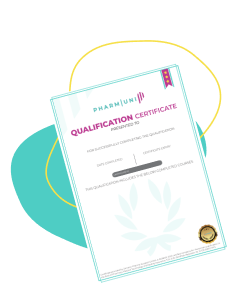In the highly regulated pharmaceutical sector, the stakes of maintaining precise and reliable master data are exceptionally high due to the direct impact on product quality, patient safety, and regulatory compliance.
Master Data Management (MDM) facilitates the centralization and standardization of critical data, thereby enhancing decision-making processes, reducing data redundancy, and eliminating inconsistencies.
This centralized approach to data management not only streamlines operations but also significantly reduces the potential for errors that could lead to costly recalls or compliance violations.
By ensuring that all stakeholders, from research and development to manufacturing and quality assurance, have access to the same, up-to-date information, MDM plays a pivotal role in maintaining the integrity and efficiency of pharmaceutical operations
Understanding Master Data Management
MDM is a method of managing the organization’s critical data. It involves the creation, maintenance, and use of a single, consistent, and accurate view of essential business data, known as “master data.” In the context of the pharmaceutical industry, master data can include information on raw materials, product formulas, manufacturing processes, quality control parameters, and more.
Furthermore, Master Data Management (MDM) in the pharmaceutical industry plays a pivotal role in enhancing collaboration and coherence across various departments and functions.
Additionally, MDM’s robust framework supports traceability and accountability, which are critical for audit readiness and for meeting compliance with global regulations such as FDA 21 CFR Part 11 and EudraLex Volume 4 Annex 11. This comprehensive approach to data governance not only safeguards product integrity but also significantly contributes to the overall agility and resilience of pharmaceutical operations in the face of evolving industry challenges and regulatory landscapes.
The Role of MDM in GMP Environments
In the complex and highly regulated world of pharmaceutical manufacturing, Master Data Management (MDM) emerges as a critical component for ensuring operational excellence. Let’s delve into how MDM influences key areas such as Data Integrity and Quality, Regulatory Compliance, Efficiency and Productivity, and Risk Management, thereby underpinning the foundation of GMP (Good Manufacturing Practices) environments.
MDM ensures that master data across the pharmaceutical manufacturing lifecycle is accurate, complete, and consistent. This is crucial in a GMP environment where data integrity directly impacts product quality and compliance.
MDM supports adherence to regulatory standards by providing a framework for data validation, audit trails, and traceability. This comprehensive approach to data management is essential for meeting the stringent requirements set forth in GMP guidelines.
By centralizing master data, MDM reduces redundancy and errors, streamlining processes across various departments. This leads to improved operational efficiency and productivity, which are vital in the time-sensitive pharmaceutical industry.
Effective MDM aids in identifying and mitigating risks associated with data discrepancies and non-compliance. This proactive approach to risk management is integral to maintaining the integrity of pharmaceutical manufacturing processes.

Implementing MDM In Pharma GMP Environments
The implementation of Master Data Management (MDM) in the pharmaceutical industry is instrumental in ensuring that all data related to the lifecycle of a drug product is meticulously organized and readily accessible.
This comprehensive management of data not only facilitates compliance with stringent regulatory requirements but also supports the optimization of the entire supply chain, from procurement of materials to the delivery of finished products.
1. Define Master Data: Clearly identify what constitutes master data within the organization. This could include product specifications, supplier information, manufacturing SOPs, and quality control parameters.
2. Establish Governance:
Develop a governance framework that outlines policies, procedures, and roles
responsible for managing master data. This includes defining data ownership,
quality standards, and compliance requirements.
3. Deploy MDM Solutions: Implement MDM software solutions that align with the organization’s needs. These solutions should support data integration, quality control, and compliance monitoring.
4. Ensure Data Quality: Implement processes for ongoing data quality management, including validation, cleansing, and deduplication. This ensures the master data remains accurate and reliable over time.
5. Monitor and Audit: Regularly monitor and audit master data and management processes to ensure ongoing compliance with GMP regulations. This should include periodic reviews and updates to the MDM strategy as needed.
Challenges and Considerations
While MDM presents a clear path to enhanced data integrity and regulatory compliance, it also poses challenges. These include the complexity of integrating disparate data sources, ensuring user adoption of new systems, and keeping up with evolving regulatory requirements. Addressing these challenges requires a commitment to continuous improvement and a willingness to adapt to the changing landscape of pharmaceutical manufacturing.
Master Data Management is a critical component of maintaining GMP compliance in the pharmaceutical industry. By ensuring the integrity, accuracy, and consistency of essential data, MDM not only supports regulatory compliance but also enhances operational efficiency, risk management, and stakeholder confidence. As such, a robust MDM strategy should be a key priority for any pharmaceutical organization committed to quality and compliance in its manufacturing processes.
Join Our Course - GMP Master Data Management
We have launched a course to help you, your company and your teams understand importance, purpose and different types of Master Data.
Why Enroll in GMP Master Data Management?
- Flexible enrollment time – enroll when you need it
- Provided by EU ISO9001:2015 Certified Company
- Certificates provided for training record
- Improve operational efficiency and product quality
- Build a culture of continuous improvement and compliance.
After completing the course you will be able to will be able to:
- Recognize the different types of master data e.g. static versus dynamic, GMP versus non GMP, meta versus non-meta.
- Understand the importance of master data for an organization.
- Discover the different applications of Master Data in areas such as Process, Product, and Software.
- Recognise the consequences of not having Master Data Management system in place.


